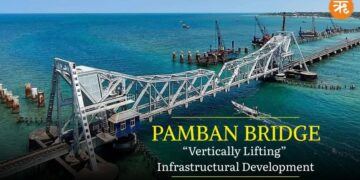On August 7, 1905, the Swadeshi Movement was formally launched in British India against the East India Company. Indians boycotted government services, schools, and courts, and celebrated Holi by burning foreign clothes. This boycott caused significant financial losses to the British and boosted the sale of indigenous goods. The movement began after Viceroy Lord Curzon announced the partition of Bengal on July 20, 1905, which was implemented on October 16, 1905, despite widespread opposition. A massive meeting in Calcutta on August 7, 1905, passed the boycott proposal, sparking the nationwide Swadeshi Movement. Indians observed October 16, 1905, as a day of national mourning.
The Swadeshi movement was started against the East India Company on 7 August 1905.
– Indians started the Swadeshi movement after being hurt by the announcement of the partition of Bengal
– Lord Curzon, the Viceroy of British India, announced the partition of Bengal
On August 7, 1941, Rabindranath Tagore, the renowned poet, philosopher, and Nobel laureate, passed away. Tagore revitalized Bengali literature, music, and Indian art in the early 20th century. He was awarded the Nobel Prize in Literature in 1913 for “Gitanjali,” becoming the first non-European and Asian to receive the honor. Known as Gurudev, Kobiguru, and Biswakobi, his compositions, “Jana Gana Mana” and “Amar Sonar Bangla,” became the national anthems of India and Bangladesh, respectively. Born on May 7, 1861, in Kolkata, Tagore wrote his first poem at eight and published his first poetry collection at sixteen.
Rabindranath Tagore passed away on 7 August, 1941
He was born on 7 May, 1861 in Kolkata
– In 1913, Tagore was awarded the Nobel Prize in Literature for Gitanjali
M. Karunanidhi, an Indian politician and former Chief Minister of Tamil Nadu, passed away on August 7, 2018. He led the Dravida Munnetra Kazhagam (DMK) and had a remarkable political career, never facing defeat in elections from 1957 to 2016. Karunanidhi first became Chief Minister in 1969 and served five terms, with his last term ending in 2011. Known for ousting the Congress from Tamil Nadu, the state saw governance only by DMK or AIADMK since then. Born on June 3, 1924, Karunanidhi was also a playwright and screenwriter in Tamil cinema before his political career. His supporters regarded him as a scholar of art.
M Karunanidhi passed away on 7 August 2018
– Karunanidhi was an Indian politician and former Chief Minister of Tamil Nadu
– He never lost an election in his political career
– From 1957-2016, he contested 13 elections and won all of them
M.S. Swaminathan, born on August 7, 1925, was an eminent agricultural scientist and a key figure in India’s Green Revolution. He introduced high-yielding wheat and rice seeds to poor farmers, transforming India from a food-deficient nation to self-sufficiency within 25 years. Swaminathan’s contributions earned him recognition as the leader of India’s agricultural renaissance. He received several prestigious awards, including the Padma Shri (1967), Padma Bhushan (1972), and Padma Vibhushan (1989). In 2024, he was posthumously awarded India’s highest honor, the Bharat Ratna. Swaminathan passed away on September 28, 2023, at the age of 98 in Chennai.
M.S Swaminathan passed away on 7 August 1925
– Swaminathan is remembered as the father of the Green Revolution
– He passed away on 28 September 2023
On August 7, 1944, the world’s first automatic electronic calculator, Harvard Mark I, was introduced. Built by IBM, it was 51 feet long, eight feet high, and weighed five tons. Harvard student Howard H. Aiken conceptualized this sequence-controlled calculator in 1930. IBM began its construction during World War II and completed it in February 1944. The mechanical parts were shipped to Harvard, and the calculator was presented to the university on August 7, 1944, costing around $200,000. It featured 60 sets of 24 switches for data entry and could store 72 numbers. The calculator performed three additions or subtractions per second, with multiplication taking six seconds and division fifteen seconds.
The world’s first automatic electronic calculator was introduced on August 7, 1944
– The name of this automatic electronic calculator was Harvard Mark I
– The Harvard Mark I calculator was made by IBM company
– It was 51 feet long, eight feet high and weighed five tons
National Handloom Day is celebrated annually on August 7th in India. Initiated by the Modi government in 2015, this day highlights the importance of handloom in India’s cultural heritage. The celebration aims to increase employment, improve artisans’ conditions, and promote self-reliance among women. Renowned handlooms include Andhra Pradesh’s Kalamkari, Gujarat’s Bandhani, Tamil Nadu’s Kanjivaram, Maharashtra’s Paithani, Madhya Pradesh’s Chanderi, and Bihar’s Bhagalpuri Silk. National Handloom Day promotes small and medium industries, honors the weaver community, and acknowledges their contribution to India’s socio-economic development.
National Handloom Day is celebrated every year on 7 August in the country
– It was decided to celebrate National Handloom Day for the first time in the year 2015
– Handloom is an important part of our Indian cultural heritage
– The main objective of celebrating National Handloom Day is to promote small and medium industries
















Comments